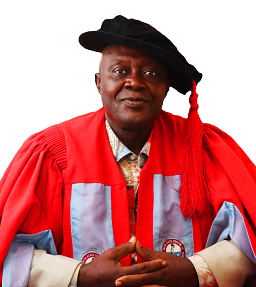Rector's Desk
Of the nearly two million students who leave secondary schools annually, less than one million successfully find their way into Nigeria’s tertiary institutions. Of the nearly six hundred thousand graduates produced yearly, each of the thirty-six states does not create up to five hundred sustainable new jobs, neither does the central government create up to seven hundred new jobs per year. The mathematics of this is that, optimally, six hundred thousand graduates seeking employment have to scramble for under twenty thousand white-collar-level probable job openings.
If we assume that 10% or 12,000 graduates enrol for graduate schools and only 3,000 retire annually, then over 550,000 remain unemployed. If 20,000 happen to find something doing in the open economy, yet more than 500,000 perambulate as job-seekers (and economic hangers-on). Meanwhile, only very few of them might have acquired skills for full-time self-engagement, or side income. After some three years of hopelessly hoping and roaming the streets, nearly all the knowledge principles learnt in school evaporate.
It is against this background that, on behalf of the Academic Board and the school community, I wish to allude to the leadership of the Christ Holy Church International for conceiving the Nation-Builders College Of Technology (NABCOTECH) with evident resources support to bridge the gap in our tertiary education system. by emphasizing on 75% practical and 25% theory — and this is directed at skill acquisition as an added value to academic excellence.

Chukwuma Ephraim O. ANUKU (Ph.D).
Rector, NABCOTECH - Asaba.
In order to achieve this purpose, the management organized two start-up programs
a Train-The-Trainers Workshop for lecturers,
a Seminar On Creativity for the school community.
Apart from daily devotion, there is also a weekly orientation session on social morality. The quality of delivery at NABCOTECH follows an intensive capacity-building pedagogy of simplified teaching that stimulates comprehensive cognition.
As NABCOTECH grows into the expansion of its academic coast, we are also upscaling the curricula with inclusive local content and enterprise development. Additionally, we are also identifying the shortfalls and needs of industries; and our short duration certificate courses are designed to fit such needs of industries, and also, to equip participants with the requisite skills to embark upon sustainable entrepreneurship.
We salute the vision of the CHC International Women’s Fellowship.
 #3 Nwanze Ozie Str. Asaba - NIGERIA
#3 Nwanze Ozie Str. Asaba - NIGERIA  info@nabcotech.edu.ng
info@nabcotech.edu.ng 